Team
Principal Investigator, Marie Skłodwska-Curie Fellow
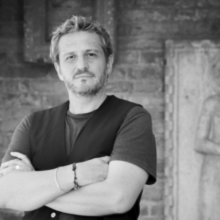
Calaon Diego, PhD
Dr Calaon has been awarded the prestigious Marie Curie International Outgoing Fellowship by the European Community in 2014, for his three-year project “Voices of Venice” to pursue his research in the anthro-ecological reappraisal of the Origin of Venice. For this investigation, he has been hosted by the Stanford University.
From 2016 Calaon is Visiting professor at Stanford University, Department of Anthropology.
Dr. Diego Calaon is a post-classical archaeologist. He is the site director of archaeological project in Torcello (Venice, Ca’ Foscari University). The excavation aim is to investigate the Late Antique and Early Middle Age origins of the “Serenissima”. In the last ten years, he worked as site director in several archaeological project in Venice Lagoon Area (San Giacomo in Palduo, San Lorenzo d’Ammiana, Torcello) and in the upper Adriatic (Comacchio, Treviso). Diego Calaon has also been actively involved in the Venetian colonial project in Dalmatia (“Stari Bar Project” in Montenegro and “The Heritage of Serenissima” in Croatia) directed by Sauro Gelichi and Mitja Gustin. The project aims have been to evaluate the impact on the local communities of Venetian and Ottoman trade systems.
Diego Calaon is also an associated researcher on the “Mauritian Archaeological and Cultural Heritage project” (M.A.C.H). Through this project, he has expanded his global and colonial expertise with reference to the reconstruction of the past, going beyond the classic chronological boundaries inscribed by Italian and European training systems.
Methodologically, his archaeological research has focused primarily on landscape transformations during the Early Middle Ages in the Adriatic region. Using GIS and a holistic approach to data management, he has worked on the impacts of both short and long term landscape and ecological changes. His Ph.D. research was innovative resulting in a thorough rewriting of the history and ‘place’ of Early Medieval emporia, principally Venice and Commachio, redefining them as key hubs between the eastern Mediterranean and northern European economies.
In addition to the post-doctoral position at Ca’ Foscari University, he is a consultant for the Regional Council of Veneto, where he has been appointed of the management of two EU project
- Marie Curie-Skłodowska Fellow, MarieCurie+1 Grant, Ca’ Foscari University – Venice (I), Department of Environmental Studies, 2017-2018
- Visiting Assistant Professor – Department of Anthropology, Stanford University (USA)
- EU Marie Curie-Skłodowska Fellow, Stanford University, Department of Anthropology and Ca’ Foscari University – Venice (I), Department of Environmental Studies, 2014-2018
- From 2012, Qualified as Assistant Professor, Italian Ministry of University and Research, “Abilitazione Scientifica Nazionale, Professore di II Fascia” (Assistant Professor), Bando 2012, DD 222/2012, Teaching Filed: L. ANT. 10
- Ph.D, Ca’ Foscari University – Venice, I (2006), “Before Venice: lands, waters and settlements. GIS analysis and instruments for a better comprehension of the landscape modifications between Late Antiquity and Middle Ages”, Grading: Excellent.
- BAHons, Ca’ Foscari University – Venice, I (2001), Cultural Heritage and Medieval Archaeology, Grading 110/100 cum laude.
Keywords
Post-Classical Archaeology; Historical Archaeology; Colonial Archaeology; Ancient Topography; Materiality of Labor and Diaspora; Ecology, Sustainability and Migrations; Venice, Adriatic Sea and the Mediterranean; Indian Ocean Archaeology; Landscape Archeology and GIS; Cultural Landscape and Cultural Heritage; Archaeological Narrative and Public Engagement; Archaeological Fields and Laboratory Methods.
Focus
Archaeology of Landscape in the Post Classical Mediterranean; The Materiality of the Landscape as Cultural Heritage; The Archaeology of Venice; Archaeology of Migration and Labor; Analysis of Cultural Landscapes in the Indian Ocean and in the Mediterranean Area. Working across various project with partners at Stanford University, Cambridge University, Reading University, University of Padua (I), UNESCO sites, Italian Ministry of Culture, National Archaeological Museum in Venice; City Council and Regional Council, Venice.
Academia, ResearchGate, GoogleScholars, Orchid, Ca' Foscari
Supervisors
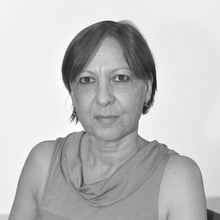
Elisabetta Zendri
Elisabetta Zendri is a specialist in Chemical Sciences for the Conservation of the Cultural Heritage. She graduated in Industrial Chemistry in 1988 at Ca' Foscari University, Venice, and in 2001 she became Associate Professor at the same University. She directs and supervises several research projects in the field of Conservation of Cultural Heritage - involving archaeology, historical architectures, modern and contemporary arts, documents and papers, modern materials - promoted by the Italian Ministry of Education and Research, and funded by EU (H2020, JPI-EU project, Interreg Programme).
She teaches “Contemporary Art Materials” and “Chemistry for Restoration”. She is a member of the INSTM (Inter-University Consortium for Science and Technology of Materials ). She is the Coordinator and Director of the Master Degrees in Conservation Science Technology for Cultural Heritage at Ca' Foscari University.
Her scientific interests aim to bridge her specialization in the field of diagnostic and restoration with the active design and management of conservation project promoted by the Italian Ministry of Culture, Unesco sites, municipalities, Museums, etc.
The research activities deal in particular with:
- Durability and conservation of stone materials;
- Study of the archaeological and traditional building materials (mortar, brick, plaster, stone, pottery);
- Study of new technologies and products for the Conservation and Restoration in the Cultural Heritage field;
- Study of the modern and contemporary mural paintings and their conservation techniques;
Research activities are developed in collaboration with national (Padova, Catania, Torino, Genova, Perugia, Firenze) and international (Greece, Portugal, Poland, Spain, Malta, the Netherlands, Belgium) Universities.
She is a referee for scientific journals (Journal of Cultural Heritage, Journal of Architectural Conservation, Analytica Chimica ACTA, Construction and Building Materials, etc.).
She is part of the Advisory Committee of the International Journal Conservation Science in Cultural Heritage and the Scientific Committee of the International Congress “Scienza e Beni Culturali”. She has published more than 150 publications on national and international journals.
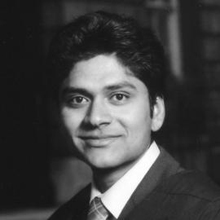
Krish Seetah
Krish Seetah is a zooarchaeologist, whose focus is primarily on colonization and colonialism. His zooarchaeological research has used butchery analysis (with the benefit of professional and ethnographic actualistic experience) to investigate agency within the human-animal relationship. More recently, he employed geometric morphometrics (GMM) as a mechanism for identifying and distinguishing animal populations. This approach to studying colonial activity centers on understanding how people manipulate animal bodies, both during life and after death. Alongside the strictly faunal research is a research interest in technologies associated with animal processing. This has been used to investigate issues of technology, trade and socio-economic attitudes within colonial contexts in the Mediterranean (Venice & Montenegro) and the Baltic (Poland, Latvia & Lithuania). Prof. Seetah is also the Director of the ‘Mauritian Archaeology and Cultural Heritage’ (MACH) project, which studies European Imperialism and colonial activity. This project centers on the movement of peoples and material cultures, specifically within the contexts of slavery and Diaspora. The work of this project has focused on key sites in Mauritius and is based on a systematic programme of excavation and environmental sampling. The underlying aims are to better understand the transition from slavery to indentured labor following abolition, the extent, and diversity of trade in the region and the environmental consequences of intense, monoculture, agriculture.
Collaborations
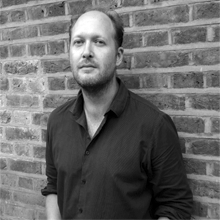
Aleks Pluskowski
Aleks Pluskowski is associate professor of archaeology at the University of Reading in the United Kingdom and an international fellow at the Stanford Humanities Center in 2016–17. A specialist in eastern Europe and the Baltic region, he has published widely on the ties between nature and culture in the Middle Ages.Pluskowski’s recent research has taken him to the eastern shore of the Baltic, where he rummaged through archives and dig sites to reconstruct a material history of the so-called “northern crusades” from the twelfth through the end of the thirteenth century — the subject of his most recent book, The Archaeology of the Prussian Crusade: Holy War and Colonization (2013).
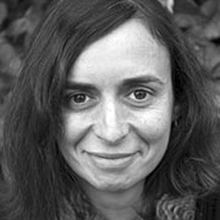
Rowena Banerjea
Rowena Banerjea is an experienced geoarchaeologist. She worked on the ERC-funded "The Ecology of Crusading" project. Her work uses soil geochemistry and micromorphology to investigate the environmental impact on the landscape. Rowena has aslo worked in the Centre for Sustainable Heritage at University College London, where she coordinated the establishment of the National Heritage Science Forum. Rowena also works as a Micromorphology specialist for Quaternary Scientific (QUEST) - scientific services, a commercial enterprise within the School of Archaeology, Geography and Environmental Science at the University of Reading, and as a result of which she has contributed to the post-excavation scientific analysis of a wide variety of archaeological sites across Europe. Rowena's Ph.D. research used soil micromorphology and experimental archaeology to understand the use of urban space in several early Roman structures at Silchester. During this time she worked on site for the Silchester Field School as the on-site Science at Silchester sampling coordinator, and was involved with Developing experimental approaches in archaeology.
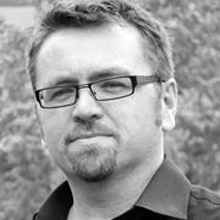
Alex Brown
Dr. Alex Brown is currently employed as a Post-Doctoral Research Associate on the Ecology of Crusading Project (2010-2014), funded by the European Research Council. Dr Alex Brown's research interests centre on the application of palaeoecology as a tool for investigating past human-environment interactions over the course of the Holocene. Alex has over ten years experience working in intertidal and wetland landscapes, completing his PhD (2005) on the evidence for human impact on the prehistoric landscapes of the Severn Estuary (UK), linked to the NERC funded Mesolithic to Neolithic Coastal Environmental Change Project (directed by Professor Martin Bell). Alex is also co-director (with Martin Bell) of the Peterstone Palaeochannels Project (2006-2010) which has been investigating the traces of Bronze Age activity within the Welsh Severn Estuary. Alex has also worked extensively across central and Eastern Europe, most recently as part of the Ecology of Crusading Project. He has a particular research interest in the ecology of frontier landscapes and the ecological responses to human agency and cultural change, currently focused on Medieval Europe. Alex is also developing research on the landscape impact of the Mongol invasions of central Europe.
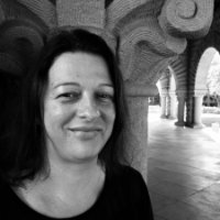
Šasa Čaval
Caval's research focuses on the archaeology of religion with regional foci spanning Southeastern Europe and the Indian Ocean. Her initial investigations centered on the Western Balkans and studied the role of medieval architecture and the integration of elements of power into sacred landscapes. She is especially interested in the application of astronomy as a tool to understand the expression of beliefs within past societies and in spiritual & social relationships of medieval communities to their landscape in SE Europe. More recently, she expanded my research to incorporate anthropological as well as archaeological perspectives in a study of identity construction, using religion and religious expression by descendent communities on formerly colonised island enclaves; with Mauritius as a principle case study. She has an extensive fieldwork and research experience in her native Slovenia, on the Adriatic islands and inland, in Bosnia and Herzegovina, focusing on religious ‘topographies.' Further afield, she incorporated temple and tomb sites at Kom Lolla and Deir el-Bahri, Luxor, West bank, Egypt into her research on the role of sacred architecture; and performed landscape based archaeological reconnaissance in the central Yucatan peninsula looking at the distribution and significance of ritual structures within Mayan civilization. She is working on the orientation of the Venice's area churches during the Early Middle Ages.
Team Torcello 2017
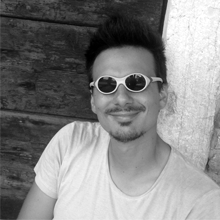
Andrea Cipolato
Ba, Cultural Heritage, Archaeology, Ca' Foscari University - Venice
Ma, Archaeology - Ancient Civilization: Literature, History and Archaeology, Ca' Foscari University - Venice
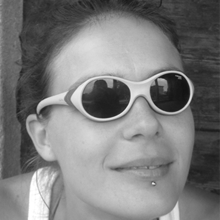
Giulia Ricci
BSc, Conservation and RestorationTechnologies for Cultural Heritage, University of Florence
MSc, Applied Sciences for Cultural Heritage, La Sapienza University, Rome
Ph.D., Chemical Sciences, Ca' Foscari University - Venice
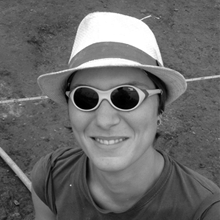
Martina Bergamo
Ba, Cultural Heritage, Archaeology, Ca' Foscari University - Venice
Ma, Archaeology - Ancient Civilization: Literature, History and Archaeology, Ca' Foscari University - Venice
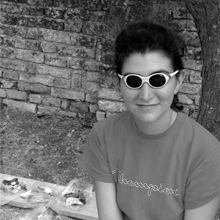
Isabel Costantini
Ba, Cultural Heritage, Archaeology, University of Udine
Ma, Antiquity Sciences, Archaeology, University of Udine
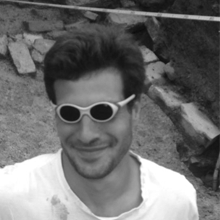
Jacopo Paiano
Ba, Cultural Heritage, Archaeology, Ca' Foscari University - Venice
Ma, Archaeology - Ancient Civilization: Literature, History and Archaeology, Ca' Foscari University - Venice
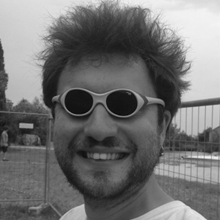
Marco Paladini
Ba, Archaeology, University of Padova

Federico Thaler
Ba, Cultural Heritage, Archaeology, Trento University
Archaeometric Lab Torcello
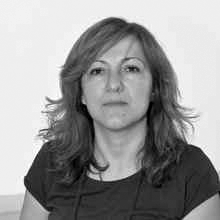
Eleonora Balliana
Graduated in Chemical Sciences and Technologies for Conservation and Restoration at Ca’ Foscari University of Venice in 2007 with summa cum laude. From 2009 researcher in the sector of CHIM/12 (Environmental and Cultural Heritage Chemistry) at Ca Foscari University (Department of Environmental Sciences, Informatics and Statistics). From 2009 professor of the Laboratory of Conservation for the third year of the Master in Technologies for the Conservation and the Restoration of Cultural Heritage. Experience in guiding thesis student and researches on cultural heritage: materials and surfaces characterizations; investigation on relationship between environment and material degradation processes; monitoring methods for outdoor surface characterization and preventive conservation; development of new products and applications for cultural heritage. Main fields of interest: materials characterization and investigation in art, architectural surfaces, natural and artificial stone materials. Experience in working with optical and electronic microscopy; Thermal analysis; Infrared spectroscopy; X-rays fluorescence and X-rays diffraction; inorganic mass spectrometry techniques (SC and MC-ICP-MS, ICP-OES); microstructure analysis methods; FTIR and FTIR-ATR spectroscopy.
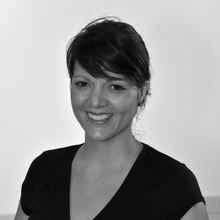
Francesca Caterina Izzo
Francesca Caterina Izzo graduated in “Chemical Sciences and Technologies for the Conservation of Cultural Heritage” at Ca’ Foscari University of Venice in 2007with a master thesis related to Modern and Contemporary Italian Mural Painting. During her European PhD in Chemical Sciences, she did a 1-year internship at RCE, collaborating into the Modern Oil Project and focusing on organic analyses on oils and additives used in manufactured oil paints. In 2011 she defended her thesis titled “20th century artist’s oil paints: a chemical-physical survey”. From 2012 she has been working as an universitary researcher in Conservation Science for Contemporary Art in Venice, collaborating with several Italian and international organisations and institutions (such as the International gallery of Modern Art Ca’ Pesaro of Venice, the Venice Biennale, the Triennale Design Museum of Milan, the Netherlands Cultural Heritage Agency, etc). She collaborates also with restorers, conservators, pubblic and private collections. She has been involved in several European projects dealing with the Science, Education and Conservation of Cultural Heritage.
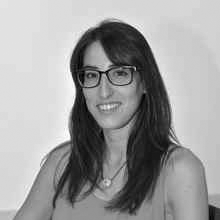
Laura Falchi
Laura Falchi, born in 1985 in Mirano, Ph.D. in “Chemical Science” at Ca´ Foscari University with the topic “Study of Water-Repellent Systems for the Protection and Maintenance of Mortars” (2013). Master degree in “Chemical Sciences for the Conservation and Restoration”(2010, Cum Laude) at the Ca´ Foscari University of Venice with the thesis “Chemical-physical study of consolidants based on water-borne acrylic emulsions and colloidal silica emulsions for historical mortars” (2011). Internship and working experience in the research product departments of San Marco Group S.p.A. (2009, Venice) , Volteco S.p.A.(2010, Treviso), Veneto Nanotech S.p.A. (2011, Venice), BAM Federal Institute for Materials Research and Testing (2012, Berlin). Currently she works as post-doc researcher at Ca’ Foscari on the topic “Rising Damp and remediation methods in Venice” and she is actively taking part to EU-JPI Project EMERISDA “Effectiveness of methods against rising damp in buildings: European: practice and perspective”.Experience in working with optical and electronic microscopy; Thermal analysis; Infrared spectroscopy; X-rays fluorescence and X-rays diffraction; FTIR and FTIR-ATR spectroscopy.
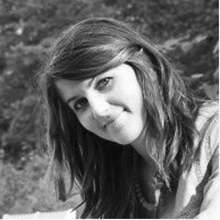
Martina Zuena
Martina Zuena (Formia, 1989) graduated in 2014 at La Sapienza University of Rome in “Science and technology for conservation of cultural heritage” with the thesis “Evaluation of mechanical properties of hydraulic binders modified with basalt fibers”.
Since November 2014, she is attending the PhD in Chemical Science at Ca’ Foscari University. Her research topic regards conosolidation of limestone through eco-compatible systems, in particular biomineralization.
Last update: 17/04/2024
